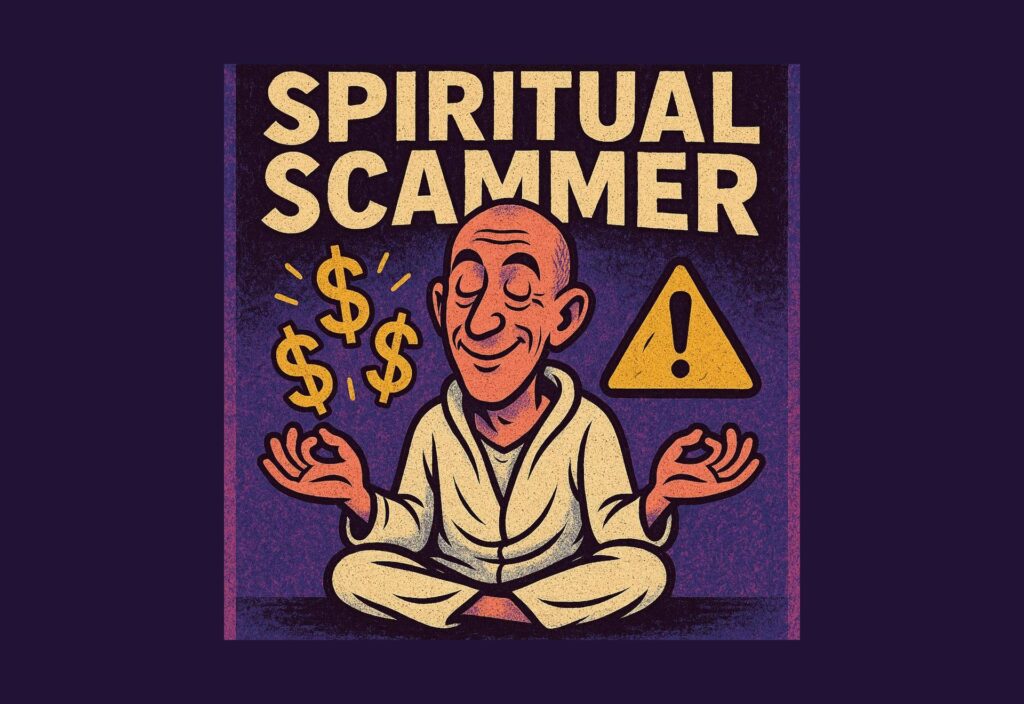Sex is psychedelic–and Stacey Ramsower knows all about it. As a Somatic Sex educator and full spectrum doula with a background in Ayurveda, Tantra, and yoga, her work encompasses much more than sex.
Being alive is a sensual experience. We don’t simply perceive our environment. We sensate–we perceive through the senses. Why do other senses heighten when one has been impaired or lost? Why is it that scent is the most potent memory and emotional trigger? We’re actually turned on by life–it’s sort of the job. Triggering to say the least.
“Sex and sexuality are as close to foundational as you can get when it comes to understanding and consciously working with how we relate to the world and our place in it. And everybody has a place in the world. I believe that.” –Stacey Ramsower
The relationship that we have with our body inevitably carries over into the relationships you have with others and with food, substances, pain and pleasure. We sat down with Ramsower who has over 20 years of experience in the healing arts to talk about everything from what we put into our bodies, from food to sex, to what comes out of our bodies, and what it means to heal through the senses.

Meet Stacey at Meet Delic
Stacey Ramsower is one of the amazing speakers that will hit the stage for Meet Delic–the first-ever psychedelic wellness summit of its kind. We’re bringing the leading minds in psychedelic science and wellness to the Wisdom LA immersive art park. Don’t miss it!
RS + Stacey Ramsower Interview
RS: One of the things that we read on your website was “Anything in life can be medicinal or toxic depending on how we relate to it.” What does that mean?
SR: From the Tantric point of view, there is no such thing as all good or all bad. Alcohol can be used as medicine, and it can also be extremely toxic. A relationship can be healing or it can be toxic. Being in an environment with lots of sunshine is very good for some people, but for others it’s not because they’re too sensitive. What I find helpful about that teaching is that it puts the responsibility on us to stay present.
Within the wellness community, things understandably get held up as the thing that’s going to save you.“This is good for everybody.” Well, no. Kale is not good in and of itself: Should you eat it raw? Should you eat it cooked? Are we aware of the fact that it only grows at certain times of the year? What does that have to say about how medicinal it is? There’s a consciousness aspect to it, but that’s a tricky word to use, particularly the larger context in which we’re having this conversation.
RS: Oh, you mean in terms of psychedelics?
SR: In terms of wellness as well. Consciousness can be interpreted in many different ways. For me, it’s about being more conscious of what is true for me and then finding the stability within myself to walk my own path without needing to ascribe it to anyone else’s. Nothing is inherently good or bad, but that doesn’t excuse doing harm. That includes what we’re taking from the earth, and how we’re behaving in all our relationships. There seems to be a growing attitude of an almost violent rejection of the other. Antagonism interests me–how do we work with antagonism in our lives? How can we make that medicinal? Can boundaries be a living, breathing thing, strong when I need to draw on them and available when they need to be?
RS: Can you talk a little bit about the concept of diet as including what we put into our bodies that’s not food?
SR: We’re constantly interacting with and ingesting our environment. What I love about Ayurveda is that it breaks everything down into their elemental components and their qualities: heavy/light, mobile, static, rough, smooth, oily, dry, things like that. Based on these qualities and elemental attributes, we can engage with our environment in ways that are healing.
RS: Do you see a correlation between the way people self-medicate with food, alcohol, and substances and the way that people approach sex?
SR: 100%. There is a lack of consciousness in our culture for the most part around food and around sex because we create binary frameworks of “black and white,” “good and bad,” “right,” “wrong.” Our patriarchal culture has constructed this internally destabilizing framework. People keep looking outside of themselves for a higher power because of it. We consider “not knowing” to be a bad thing rather than full of potential.
To come back to this understanding of relationships. I’ve learned that when I’m in an environment that’s genuinely kind and accepting in which I feel seen and joyful, engaging with alcohol feels celebratory. It feels sober in the sense that I register on a physical and emotional level when I’ve had enough. It’s easy to put it down and stop because I’m satiated, I’m done.
RS: Satiated is a good word. In this culture, there’s a pendulum that swings between holding yourself back from your own pleasure and then throwing yourself into excess.
SR: Having polarity is necessary to all relationships whether we’re talking about working with plants or being in a relationship with another human being. With sex, the more conscious we become, the more consciousness expanding it can be. The more conscious I am of my own limits and boundaries, the more I can work in a way that is safe and then transcend to greater experiences of pleasure or excitement or whatever it is that I I need. The Ayurvedic view of that would be to stay awake, to stay aware of how those needs change and fluctuate throughout life.
RS: If you listen to your body, it will tell you what it needs.
SR: If there isn’t a lot of toxicity in the body, it will very clearly ask for what it needs and what is appropriate to either the season of your life or the season that you’re in. But it’s your body, your framework. How much of your life has been spent trying to replicate what someone else said would be good or helpful?
RS: This one size fits all thing is weird.
SR: You’re uniquely you. Our culture has instilled in us this one size fits all whether it’s food or relationships or a career. This is the standard issue and standard operating procedure. If you do this, you will be successful. How many of us have experienced the opposite? That we are not built for this kind of career or that kind of relationship? It comes up so much when I talk to people about relationships and sex. You’re not supposed to want anything in particular.
RS: What do you mean?
SR: Sex and sensuality are part of our baseline survival. Procreation, of course, is a component of that. But I also mean sensuality and being. Touch is essential to our survival, experiencing pleasure in our body, and feeling safe enough to give and receive comfort. For some of us that’s sex, for some of us that’s companionship. There’s no right or wrong when it comes to sex as long as it’s consensual.
We receive these images from music videos, movies, media and think that’s what it’s supposed to be like. Sex is supposed to involve like whips and chains. Well, you could have really hot sex in the missionary position.
RS: Right.
SR: There’s also a distinction between fantasy and what we actually want with our physical body in real-time. What do you have in your personal fantasy landscape versus how do you actually want to engage with your partner or partners? It’s not that we necessarily want them to do what happened in our mind.
RS: Can you extrapolate on that?
SR: Jack Morin was a very famous sex therapist, PhD in psychology, and he wrote extensively about “sexual erotic scene” and the usefulness of fantasy. Fantasy is a part of the imagination that gives us access to possibilities. Daydreaming can give us just enough departure from the mundane to give us a more energy flow. Having an internal private fantasy life can be a way to cultivate more erotic energy for ourselves, whether it’s through a masturbation practice or just imagining. That’s erotic energy. We conceive that sex and sexuality is for someone else when it’s ours. So, I can have a fantasy life. It’s for my own personal satisfaction, fulfillment and energy flow.
RS: How would you define erotic?
SR: Eroticism and evocative run parallel for me. The erotic opens our eyes wider and makes us more aware of possibility. I also conceive of it as a slowly building wave which could be applied to everything. It can be slowly eating versus just shoving something in your mouth.
RS: Taking the time to feel?
SR: Taking time to feel. It really draws all of your attention and senses into the present moment. Without it having to be result oriented. I talk about that aspect of sex and sexuality a lot with clients because I work with a lot of pregnant and postpartum people. Pregnancy is often the point of biggest shift for women in their experience of their own sexuality. The physical expansion of one’s body, the emotional and psychological expansion. Giving birth is pretty trippy. There’s no other word for it. It’s the ultimate trip spoken by someone who has never done psychedelics. I chose to have an unmedicated birth, at home. It was the most transcendent experiences I’ve ever had. It’s insane what our bodies are capable of.
We’ve trained ourselves to not be able to be present for that, which is what I think medical birth has done. Pharmaceutical medicine or more generally Western medicine has trained us to not be able to withstand human limits.
RS: That made us think about belonging. A shaman once told us that “belonging is the fundamental wound.”
SR: Wow.
RS: Right? We were thinking about what people call “birth trauma” or the separation from mother as a concept. Having your child at home versus having your child in the hospital changes the conditions in which that baby comes into the world.
SR: That’s a huge part of why I do the work that I do, including, somatic sex education: understanding how we came into the world and those early attachment patterns that start in utero. This is a teaching in Ayurveda. The karma or the work that we have to do in this incarnation is summed up like this: 25% of it is what your individual soul needs to do to continue evolving. 25% of it is carried from your maternal lineage. 25% of it is carried from your paternal lineage and 25% is carried from the imprints made in the womb.
RS: Wow.
SR: The imprints that are made in utero are significant and they’re not only for the baby. They’re significant for the mother. Her healing and recovery is dependent on the quality of care she received throughout pregnancy, during labor, and birth.
RS: All that transfers to the child, right?
SR: There is an actual scientific study proving the fact that mom and baby are essentially one organism for the first three years of that child’s life.
RS: When you’re working with people as a somatic sex educator, what are most of the people coming to you searching for?
SR: More ease in expressing their needs and wants. It can be boiled down to self- trust and communicating and relating from that place.
RS: Can you begin to discern what their initial relationship was like with their mother and father? How do those childhood experiences affect their concept of self-trust?
SR: It often will emerge on its own. It depends on how I’m working with someone. In any case, it is a process of unpacking relational patterns: where that initial pattern started, and how it might be carried over from their experience of being seen, cared for, or rejected. Depending on the relationship they have with their mother or father, I might invite them to inquire into what it was like for their parents to be pregnant? What was it like to give birth? It’s not a conversation that is safe for everyone to have with their parents.
RS: That’s an interesting point.
SR: It’s interesting for us to be aware. Did you ever hear your mom talk about being pregnant or did she talk about it openly? It’s an important point to make, I think, that the definition of trauma is the perception of a threat. There isn’t a single event or action that determines whether or not someone will be traumatized. Within this conversation about trauma, there’s lowercase “t” trauma or capital “T” trauma. A major catastrophe, like a hurricane or war, that’s capital “T” Trauma. I don’t think birth should be categorized as capital T trauma. However, the increase of anxiety, depression, and psychosis that’s coming along with birth indicates that something is happening.
RS: What do you think?
SR: I think that medicine is trying to control and dominate the human body and in particular the female body. It started in the forties and fifties. Women were given general anesthesia, knocked out for childbirth, and strapped down to a bed.
RS: Oh, belladonna too. So crazy.
SR: The increase of medicalizing and dominating the person’s reproductive and sexual function is expressing itself through our generation. And the generation behind us with an increase in what we’re calling mental disorders.
RS: What are we calling mental disorders..?
SR: What we’re calling mood disorders or mental health dysfunction is trauma manifestation and response.
RS: Totally. We don’t understand what happened to Western medicine. The entire body was broken to pieces–it doesn’t even make sense. You have to go to this doctor for this, that doctor for that. What a strange philosophy, that the body isn’t a whole organism that includes emotion, spirit, even sex–it needs to be expressed.
SR: Sex and sexuality are as close to foundational as you can get when it comes to understanding and consciously working with how we relate to the world and our place in it. And everybody has a place in the world. I believe that. We all come into this world on purpose, with purpose and can, of course, go a little haywire or get screwy depending on how we perceive our role in this world. All of us are on a path of healing in one way or another. And healing is subjective.
RS: To bring this idea back from the beginning of our conversation–that we consider “not knowing to be a bad thing rather than full of potential.” Knowing is dominant and controlling, whereas living in a space where you don’t know allows you to be more present with what is.
SR: Yes, we’re able to relate clearly. That allows us the freedom to express all of the aspects of ourselves. To say, for example, “in my sexual life, I prefer the dominant-submissive dynamic. Whereas, in my work life or in my parenting or whatever I prefer something else.” Getting more curious about our sexual dynamics, preferences, needs, and even allowing yourself to play more in that arena would help to transform our healthcare system.
SR: I think for a lot of people, it’s uncomfortable to think about sex and parenting or children in the same breath. But, sex makes babies so…















